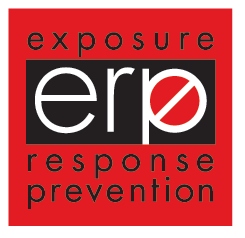Follow Us x
Prevention is the first line of defense to help your loved one suffering from addiction. Today parents, loved ones, and family members are in the best position to see drug use in the family as well as to stop it. It is a hard task to face but there are many families impacted in America who have dedicated themselves to fight this serious problem. Through dedication and persistence many families have joined their loved one in the fight over addiction and won.
The first step is to become familiar with the drugs that are available today. This includes information on the drugs, what they look like what the side effects are, terminology, lingo, and of course keeping updated on the new drugs.
If you think someone may be using drugs there are signs that you should look for. These include physical or biological signs, physical evidence, and behavioral changes. Even though we will talk about these changes, don't be too quick to jump to any conclusions.
What You Can Do If Someone Close to You is Using
Helping a loved one who is addicted to alcohol and drugs to get help is a difficult task. Here are some suggestions that might get the message to your loved one:
- Find out what resources are in your local area. These include professionals, community support groups, hospital, rehabs or medical professionals.
- Educate yourself on their addiction. Read about the effect their substance abuse can have on them. Research the biological and mental effects of the drug. Learn as much as you can before taking action. The internet is a great source for information.
- Let you loved one know that you are concerned about them. You don't want to anger them but you've become aware in changes in their behaviors and attitudes. Be specific about the changes and ask if they have noticed them as well. DO NOT accuse them of being addicted.
- Open up a dialogue about their substance abuse or self-destructive behaviors you need to think of other people they trust who might help with a more organized family intervention.
- Do not allow your loved one's addiction to dominate your life. Set realistic boundaries so that your loved one is aware of your limits. Do not be surprised if they attempt to manipulate you with lies and false promises. Addiction turns even honest people into liars. Seek out help or assistance for yourself. The beginning will be tough, stay strong and keep up a consistent front. A good source for support is Al-Anon, Nar-Anon or other community based groups for loved ones with addictions.
- Do not ENABLE them. Enabling is defined as supplying them with the means, knowledge or opportunity to maintain their addiction or its negative consequences. A person suffering from addiction must learn to take accountability or responsibility for their actions and face the consequences their addiction causes. By enabling them you will help them to avoid consequences and this will prolong the addiction, causing their illness to progress further.
- Once your loved one gets into treatment they may relapse. About 75% of people suffering from an addiction relapse- many do several times before they finally succeed. If your loved one relapses, don't lose faith. Encourage them to continue what they were doing "RIGHT" prior to the relapse: seek out professional help. Go to community support groups, get medication, etc.
- Seek out medical assistance if your loved one goes into crisis (blackouts, withdrawal, overdoses, convulsions, can't wake them up, tremors, shallow breathing or any dramatic changes in behavior or mood).
- Most of all remember that it is THEIR addiction, not YOURS. You cannot help them if you take the responsibility for their action - make sure you hold them accountable and responsible and point them towards help. Support them after they are in treatment not before.
The Signs of Potential Drug Use are as Follows:
Sleep Patterns:
- Inability to sleep
- Awake at unusual times
- Unusual laziness
Appetite:
- Loss of appetite
- Increased appetite
- Changes in eating habits
Physical Signs:
- Cold & sweaty palms
- Shaky hands or tremors
- Red or watery eyes
- Pupils larger or smaller than normal
- Unusual smells on breath, body or clothes
- Extreme hyperactivity
- Excessive talkativeness
- Slowed or slurred speech
- Needle marks on body (legs, arms, feet)
- Nausea or vomiting
- Excessive sweating
- Irregular heartbeat
- Runny nose and/or hacking cough
- Puffy face, blushing or paleness
- Frequent rubbing of the nose
- Frequent twisting of the jaw, back & forth
Personality Changes:
- Overall attitude/personality changes with no identifiable cause.
- Chronic dishonesty
- Sudden over sensitivity
- General lack of motivation, energy, self-esteem, I don't care attitude
Actions:
- Drop in grades at school
- Drop in performance at work
- Skips or misses school
- Skips or misses work
- Change in activities or hobbies
- Temper Tantrums or resentful behaviors
- Difficulty in paying attention
- Forgetfulness
- Change in habits at home
- Loss of interest in family and activities
- Excessive need for privacy; unreachable
- Secretive or suspicious behaviors
Physical Evidence
- Finding Substances on them
- Empty cans or bottles
- Finding paraphernalia
- Finding drugs in their room or car
- Deodorizers or incense to cover up smells
- Car accidents
- Change in grooming habits
- Possession of drug paraphernalia
- Changes in friendships
- Friends are known substance users
- Unexplained need for money
- Stealing money or items
- Missing prescription pills
- Possession of a fake ID

